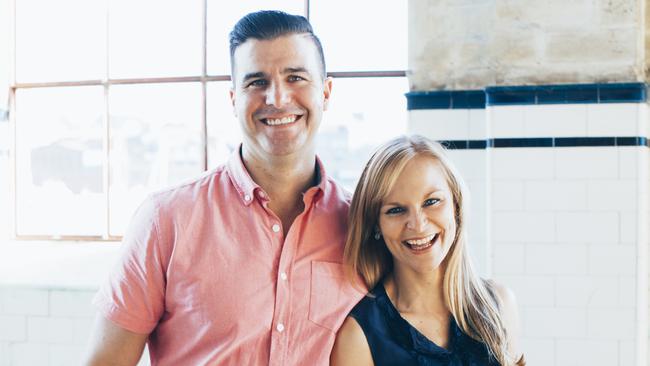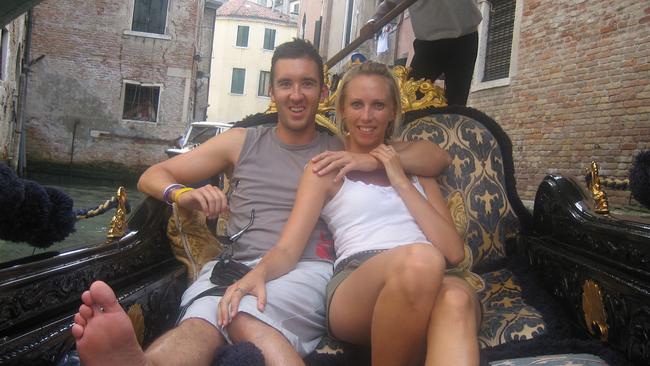Travelling together can make or break a relationship so manage expectations before leaving
Travel can bring out the best and worst in personalities and make or break relationships. See expert tips for happy travel.
SmartDaily
Don't miss out on the headlines from SmartDaily. Followed categories will be added to My News.
The Darjeeling Limited, Sex And The City 2, Us, and The White Lotus.
They’re hit movies and television shows with a focus on family, friends and significant others travelling together, showcasing not only glamorous destinations but also the challenges of being out of your comfort zone with others.
You might love your BFF or sibling in normal life, but swap home comforts for a backpacker resort in Thailand and your mutual affection can become strained.
Ditto for couples, especially new ones. Even if you spend the night regularly with your new love, head off somewhere new and you may quickly realise you don’t know them as well as you think.
Shahn Baker Sorekli and Helen Robertson are married clinical psychologists with a blended family.
Baker Sorekli says that travel can “peel back” a person’s layers revealing their strengths and vulnerabilities.
“Whether it’s your partner, a friend or a family member, you are going to spend larger amounts of time with them than you ever have before,” he says.
“You will be exposed to all aspects of their personality without the usual breaks and resets that you are accustomed to at home.”
Baker Sorekli says that even simple things like bedtime routines and food habits, or if they prefer spontaneous exploring or careful planning, can be positive or grating.

“Feelings can also be exacerbated by travel stress such as cancelled flights and lost luggage,” he says.
“Changes in climate, time zones, language, currency and culture all add exciting elements to life, but they can also add stress and pressure.”
Robertson says that common issues both couples and travel companions face often revolve around value clashes and habits.
“A big issue is differences in expectations,” says Robertson.
“If they are not similar, one or both parties will likely experience feelings of disappointment, frustration and resentment.”
Another is financial mindsets.
“If you have a different budget from your travelling companion it can cause tension when one of you wants to do more extravagant activities or has differing eating choices that the other is not comfortable with,” says Robertson.

Life and mindset coach, Amber Clarke, says the key to a happy, argument-free trip for everyone is to be prepared and have an understanding of the needs of others.
“This means that you should know what you want from your vacation before you arrive at your destination, so that you don’t end up feeling disappointed with what’s available to offer,” she says.
“You should also be aware of the needs of those around you so that you can avoid any conflicts or arguments.”
If you’re travelling as a couple Clarke says you be realistic about your expectations and not expect the entire trip to be “butterflies and fireworks”.
And if you’re travelling with children, plan ahead and let them have a say in what they want to do.
To avoid arguments, Baker Sorekli recommends being clear about how you are feeling throughout the trip.
“Try not to bottle anything up for too long as you will only explode, and try not to push your interests or goals aside for too long either, as you will only grow resentful,” he says.

In 2006, while still dating, Marcus and Sarah Pearce embarked on an 18-month-long overseas trip visiting 25 countries.
The pair had many concerns before leaving home, from managing their finances to what activities they wanted to do, and while the trip was a highlight of their lives it wasn’t all smooth sailing.
“There were a few occasions when we thought we’d ‘wing it’ with accommodation,” says Marcus, 41, a longevity coach and author from Byron Bay.
“One weekend we arrived in Arles in France, only to discover that there was an annual festival on and it was like looking for a needle in a haystack finding a place to stay!”
The couple had numerous other mishaps from missing trains to being “sucked in” by fake beggars, but they also learned a lot about one another.
Marcus admits that neither one of them considered how big a commitment the trip was, and has tips for others planning future travels.
“Talk about money openly well before you leave,” he says.
“And whether it’s a short or long trip, make sure you know what each other’s morning and evening routines are. If that’s not discussed or known before the trip, it’s a sure-fire way to end up in conflict.”
TIPS FOR MAKING TRAVEL BETTER WITH OTHERS
Keep an open mind.
Consider and be honest about everyone’s preferences and expectations of the trip.
Discuss what activities you want to do.
Define clear budgets.
Have a contingency plan in case something goes wrong.
Use checklists for planning to ensure you don’t forget anything.
Source: Amber Clarke
Originally published as Travelling together can make or break a relationship so manage expectations before leaving




